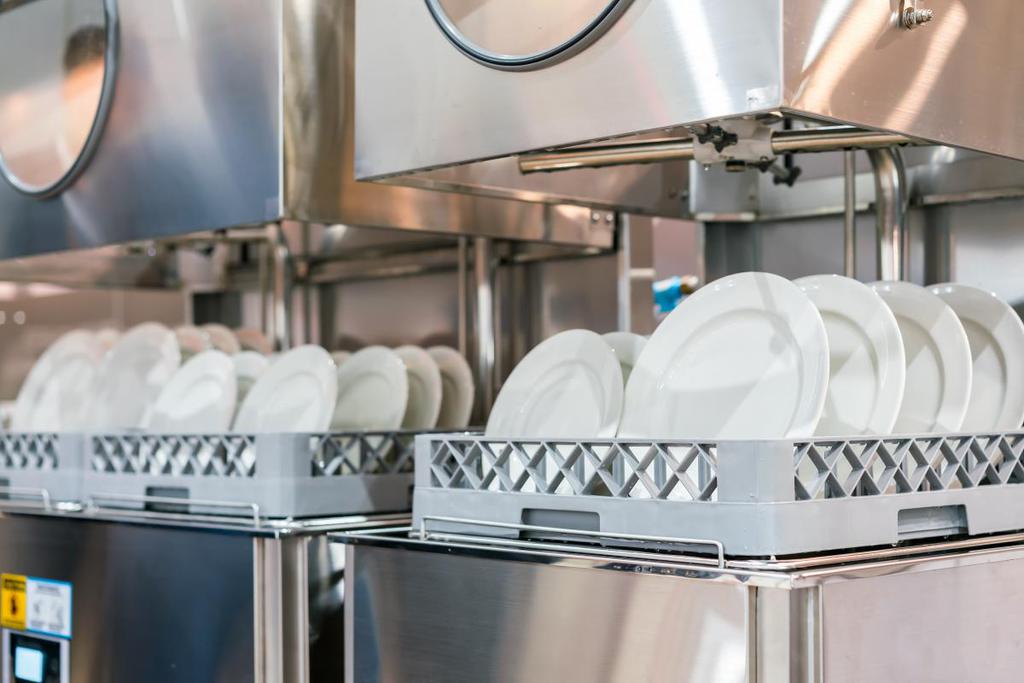

|
Chris Shaw
Editor |
| Home> | FACILITIES MANAGEMENT | >Chemicals & Dosing | >Small parts matter |
Small parts matter
20 August 2018
Sustaining consumer and production line safety while upholding hygienic and sanitary standards continue to be a challenge for cleaning chemical companies and equipment manufacturers, explain Lily Lei and Mayte Alvarenga from Saint-Gobain Performance Plastics.

Cleaning chemicals are harsh and the equipment’s inner parts must be selected and designed with chemical compatibility in mind. Protecting the equipment brand while considering cost effectiveness is another hurdle. How does an equipment manufacturer ensure long life in an application as challenging as cleaning chemical dispensing?
Safety and hygienic measures have been implemented in equipment design but in the end it’s the cleaning chemical dispensing tubing that does most of the heavy lifting: it transports harsh chemicals from pump rooms, sometimes through walls and ceilings, to the application equipment. If the tubing fails, the resulting leak could ruin the piece of equipment or lead to more serious consequences to the human operating the tool.
In real-life operations, such as hospital or hotel laundry rooms, restaurant or bar dishwashing operations or in municipal water management facilities, maintaining hygienic and sanitary standards are of the upmost importance. This plays into these end users’ rationales when considering what equipment to use to effectively perform these tasks. Since tubing plays such an integral role in chemical delivery, equipment manufacturers can safeguard the performance of their products through smart tubing selection.
The Dispensing Process
The dispensing process is often similar across different industries as it relies on transfer tubing through the entire journey. Cleaning chemicals are stored in a tank, which connect into a peristaltic pump or pumps depending on the size of the operation via transfer tubing. Through the peristaltic pump(s), the chemicals are diluted with water and are then discharged through transfer tubing into equipment.
While this may sound somewhat straightforward, there are other factors at play. Chemical compatibility, flow rate stability and dosing accuracy are critically important considerations that determine not only tubing performance but also the equipment’s service life. In large cleaning operations, chemicals may need to travel long distances which requires high pressure, another enemy of long service life. For manufacturers, long service life can help protect their brands while providing cost effectiveness to end users.
While tubing must be resistant to harsh chemicals and high pressure, it also needs to be flexible enough to be installed in equipment that may be small or be unusually shaped.
Tailored Tubing Solutions
Using industry knowledge and expertise, Saint-Gobain has designed a line of products that not only meet these criteria but focus on optimised performance and long service line. For peristaltic pump tubing operations, Tygon Chemical, TygonA-60-G, and Tygon A-60-F are said to offer excellent peristaltic pumping performance and chemical compatibility and flexibility which extends the service life of the tubing and reduces the risk of downtime due to tubing failure. The UV and ozone resistant feature of A-60-G will also not weaken or crack after years of exposure to heat and ozone, providing longer peristaltic pump life in industrial and institutional cleaning-chemical dispensing applications.
As for transfer tubing, Tygon 2375-C, Tygon2375 C I.B. offer impressive chemical resistance, allowing the transportation of harsh chemicals required for certain cleaning applications. Tygon2375 C I.B. was designed with high pressure applications in mind and its robust, polyester braid reinforcement construction ensures a full vacuum rating, suitable for the suction/delivery side of any chemical transfer. Finally, both options were designed to be clear and highly flexible without the use of plasticizers, making this tubing environmentally friendly and facilitating safe disposal.
For equipment manufacturers whose end users prefers consistent dosing stability over other performance criteria, another option is Versilon SPX-50, which was created for use in applications where consistent flow stability is the most critical requirement. Produced from a proprietary combination of silicone elastomers, this flexible tubing optimises critical physical properties such as tensile strength elongation and compression set, resulting in excellent dosing stability compared to other materials.





















